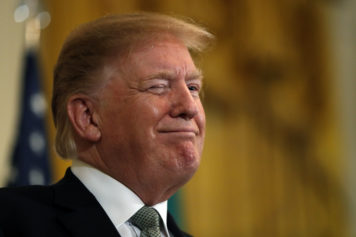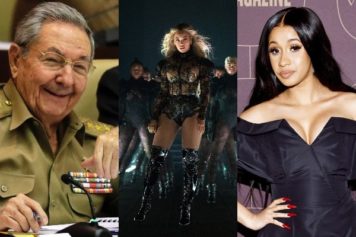CARACAS (Reuters) – Venezuelan President Hugo Chavez strode, sang and gave a rousing speech on Friday in a careful show of vigor after his latest cancer treatment in Cuba fanned rumors he was dying five months before an election.
The socialist Chavez, who had only been seen live in public once in the previous month, addressed the nation after flying back from Havana where he has completed six rounds of radiation therapy.
With Venezuelans watching on live TV for any sign of his condition, Chavez walked with relative ease from his plane, hugged ministers, inspected a military guard and improvised a song at the end of a 20-minute speech.
“I can tell you that in the last few days we successfully completed the radiation cycle, as planned by the medical team,” Chavez said in a strong voice.
“I come with great optimism that this treatment will have the effects we hope for, always asking God to help us and give us the miracle of life to keep serving.”
The official line in recent weeks has been that Chavez was out of the public limelight due to the effects of radiation treatment, but is on the road to recovery and will soon begin his re-election campaign ahead of the October 7 vote.
But there is speculation, stoked by leaks from pro-opposition journalists citing sources in Chavez’s medical team, that his condition may have turned grave.
HIGH STAKES
The implications of that would be enormous for the South American OPEC member nation that Chavez has dominated for the last 13 years without grooming a successor.
Rumors have been flying of a nascent succession struggle among his closest allies. Meanwhile, opposition presidential candidate Henrique Capriles is struggling to win public attention amid the national obsession over Chavez’s condition.
Without giving any clues as to the details of his cancer, Chavez said he must continue “rigorously” following medical instructions in coming days.
“But as the hours and days pass, I’m sure that with God’s favor, medical science and this soldier’s body, I will get back to where I must be, in the front line of the battle, alongside the Venezuelan people, promoting the socialist revolution.”
Such stirring language has helped underpin Chavez’s strong connection with Venezuela’s poor majority, though critics see it as evidence of his demagogy masking a dictatorial rule.
Opposition politicians say Chavez, who has spent about 100 days of the last year in Cuba since being diagnosed with cancer, has left Venezuela in paralysis.
“He is a president who never delegates anything. Even the most mundane, daily decision in a ministry, people don’t dare take decisions if they think they don’t have the president’s blessing,” Capriles ally Maria Corina Machado told Reuters.
“This is a country that is practically paralyzed.”
Chavez’s condition remains a state secret, with few details divulged beyond the fact he has had three operations in a year to remove two malignant tumors in his pelvic region.
The Venezuelan president declared himself “completely cured” at the end of 2011, only to acknowledge a recurrence of cancer early this year. That has fed skepticism and speculation among Venezuelans over Chavez’s future.
The wider region is also watching the saga closely.
Communist-run Cuba depends on subsidized Venezuelan oil to keep its ailing economy afloat, while the United States has long viewed Chavez as its principal foe in the region.


